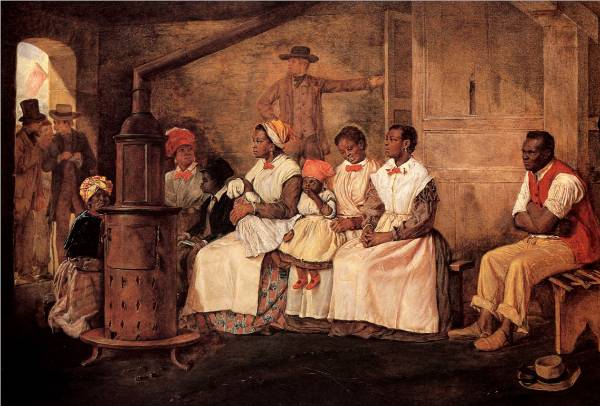The nineteenth-century press was full of what we would now call ‘fake news’, particularly with regard to the alleged lack of intelligence of the black community. So normalised was the belief that black people were stupid and incapable of looking after themselves and would continue to need, in the words of slave-owner Edward Long, 'white guidance to civilise them', that it was even part of the anti-slavery discourse. A poem supporting the abolition of slavery used the term ‘nigger’ and has a ‘grateful slave’ trope to the ‘kind gentle Misses far far away, who may be very high and me very low’, maintaining the hierarchy of white superiority and black inferiority. The piece is from a book of poetry sold to raise money for the anti-slavery campaign, but the attitudes still reflected the racial pecking order. Writers found many different ways to promote the idea that African people were sub-human and from a different species to the white European to prove the inferiority of black people.
Writers found many different ways to promote the idea that African people were sub-human...
Slavery was abolished in the British Colonies in 1833 but scientists and anthropologists lent credibility to pseudo-sciences that purported to show differences between the races. One article from The Glasgow Herald in 1866 describes a meeting of an anthropological society in Glasgow where a boy of the Bonnu Tribe in Central Africa was exhibited. The boy was bought for £7. Mr Carter Blake, an eminent anthropologist, drew attention to the fingers of the boy which ‘he said exhibited the characteristic attributed to the negro of being partially web-footed’. The boy seemed intelligent, but Dr Hunt, Head of the Glasgow Anthropological Society, said this wasn’t evidence of adult intelligence in ‘negroes’ as their intellectual development will stop at an early age. Another anthropological society meeting discussed the ‘Negro and his place in Nature’. Scientists compared black people as ‘of shorter stature […] whose arms were long in proportion, thus enabling the negro […] to touch his knee’, and as closer to the apes. They confirmed that all development ceased at puberty and the skull became more ‘ape-like’. It was put forward that all intelligence ceased at 14 years of age, and that offspring between the European and black people will die out after a few generations. Another pro-slavery piece discusses the limited mental vigour of black people. ‘Nature… fixed the limits of the black man’s mind and no training, no example can cultivate the lower animal into the higher’.
 Slaves waiting to be sold
Slaves waiting to be sold
Edward Long, slave-owner, former governor of Jamaica and historian, and writer of the History of Jamaica in 1774 (which many historians acknowledge contributed extensively to the development of racial hierarchies in British consciousness), believed that Creoles, the children of African slaves ‘civilised’ by being raised in the colonies, were more intelligent than their African parents. As proof of their ‘inherent stupidity’ Long noted that ‘they cannot place a dining table square in the room and make other errors in the tasks assigned to them’. He never considered the possibility that such resistance was intentional.
Other examples of extreme resistance are in the continual uprisings reported in the nineteenth-century press, from Martinque and Antigua in 1831; St Lucia in 1832, with 25 estates burnt down, to Jamaica’s ‘Christmas uprising’ of 1831, where the judge at the enquiry blamed the missionaries for licencing black people to preach to black people: ‘Such men are termed leaders and have psalms and hymns of their own composition and language’. The insurrection caused damage to property valued at a million and a half dollars, and the plot concerned the whole island.
A letter from Arthur Brown, slave-owner, to Sir Thomas Fowell Buxton, a leading abolitionist in the House of Commons, suggests that of the twenty-five slaves he owned, only five were ‘useful’ and he would happily emancipate them as they were ‘mutinous rascals who keep my estate in hot-water’. He suggests that they could come to Britain and work in Buxton’s brewery as ‘they love to drink, but I believe would fire your brewery for a lark as they did burn my wash houses’. Their behaviour would not have been viewed as resistance to their continued enslavement, but as part of the ‘war’ that many slave-owners saw themselves involved in, living in communities where Africans so vastly outnumbered them.
Another article from The Glasgow Herald of 1863, on the American War, proves that maintaining the myth of the intellectual inferiority of black people was part of the means of subjugating them. After the American Civil War (1861–1865) which led to the abolition of slavery in the USA, forced out of necessity to employ the services of freed slaves, whites/planters were happy to find them ready and willing to work, if adequate wages were paid to them. The article goes on to described how inspectors from Washington sent South to examine the results of free labour were ‘surprised to announce that the negroes, after all, are very like white men and will work hard enough if you treat them well and pay them fairly’. This disproves a theory from an 1832 article that the ‘half savage population of blacks were utterly incapable of providing for itself even the means of subsistence’.
Close examination of the nineteenth-century press in Glasgow reveals that both before and after slavery was abolished in the British Colonies, the press continued to represent black people as ‘savage’ and ‘barbaric’ lower human beings who needed European assistance in order to survive.




Rate and Review
Rate this video
Review this video
Log into OpenLearn to leave reviews and join in the conversation.
Video reviews